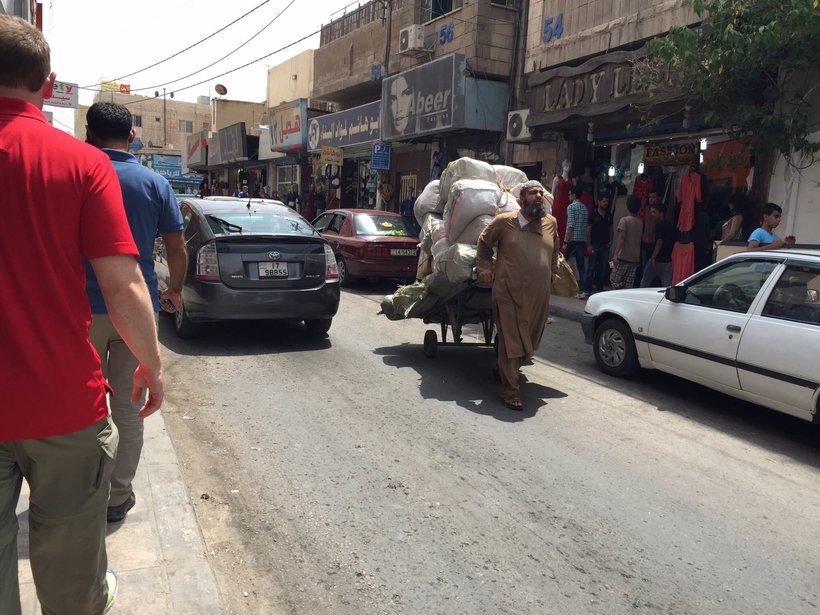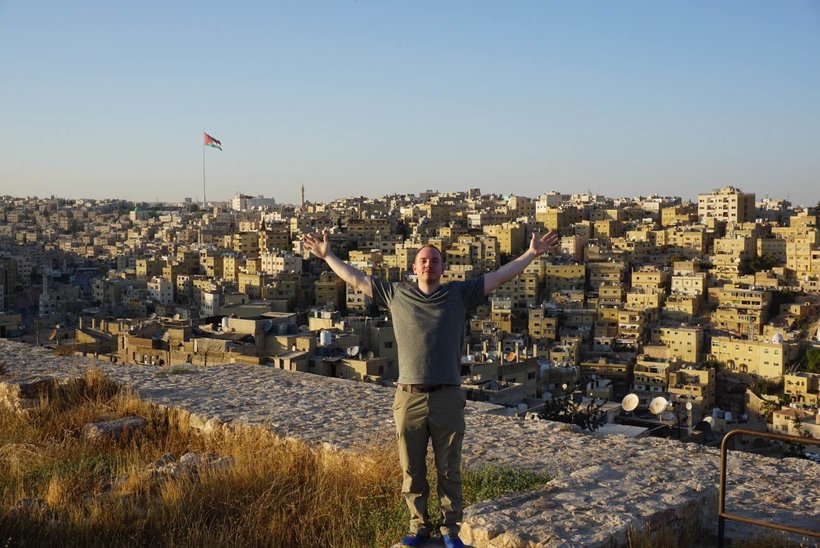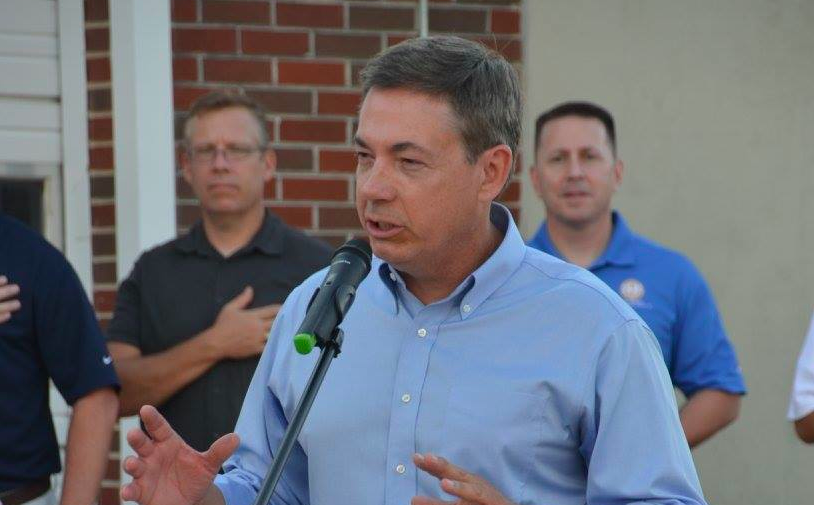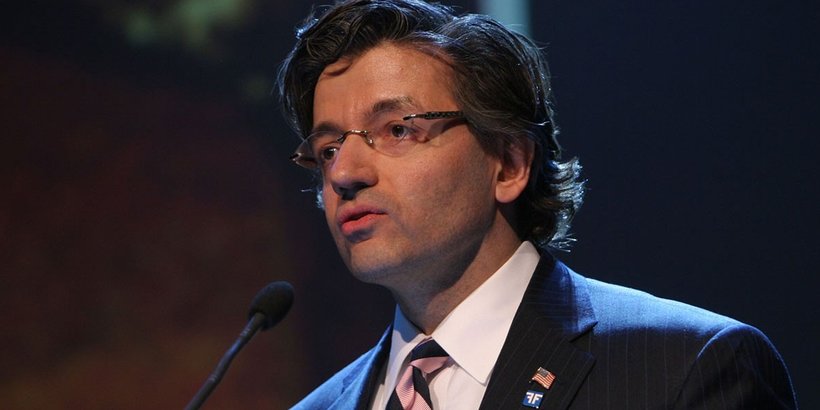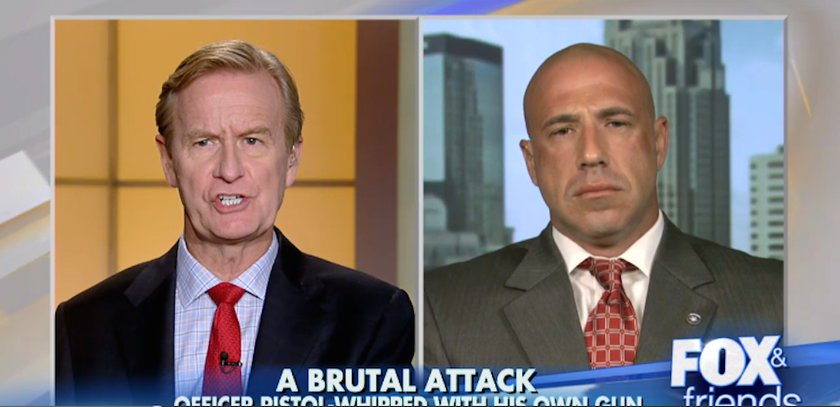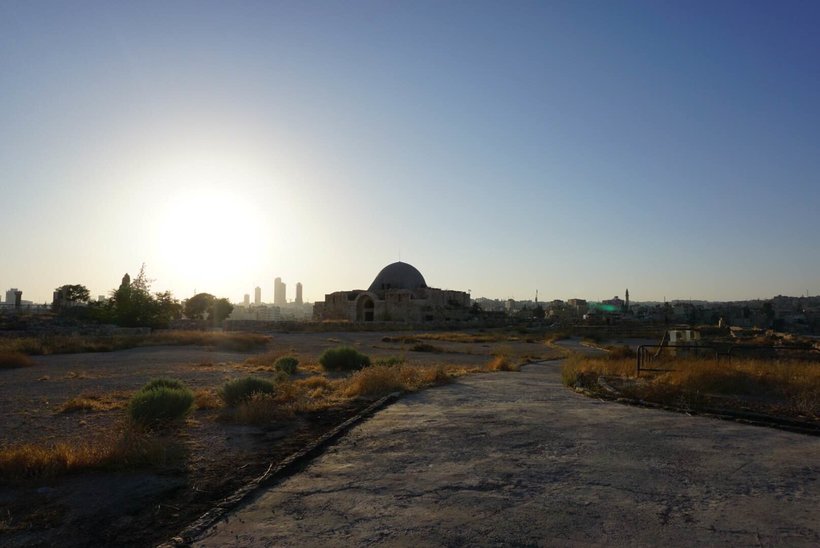
For the last week I have been in the Hashemite Kingdom of Jordan, a key U.S. ally bordering areas of Syria and Iraq currently controlled by the so called Islamic State.
While Jordan has remained a relatively peaceful nation in the tumultuous region, its close proximity to the Syrian civil war, the deteriorating situation in Iraq and the spread of the self-styled caliphate have created a security nightmare for the country’s leadership.
Many Americans were first introduced to ISIS when the radical Islamic terrorist group released a video of their militants burning alive a Jordanian pilot whose plane had crashed in Syria several months before.
Roughly 20 percent of the people in Jordan are refugees who have been pushed out of Syria by the constant fighting.
For context, this would be roughly the same as the United States absorbing over half of Mexico’s population in the span of about three years. The United Nations has supplied some aid and set up refugee camps just inside the border, but conditions are so poor that people regularly die in the tent cities from the blistering heat. As a result, roughly 85 percent of the refugees inside Jordan have fled the camps and now live in urban areas among the population. They have almost nothing, receive no aid and it is illegal for them to work.
This has become a major drag on the country’s economy and a humanitarian disaster. On top of that, the crisis has stretched to the limit the abilities of the Jordanian security forces, who are charged with the impossible task of assessing the motives of individuals flooding across the border.
With all of that as a backdrop, here are seven things I learned during my week in the country.
1. Obama’s incoherent Middle East strategy is a disaster in every way
I met numerous Syrian refugee families from Daraa, the city where the uprising against the Assad regime began. Every one of them has a story that would make your stomach turn, and most of them have no hope of returning to their homes because their neighborhoods are rubble. Almost every Syrian I met has seen — and I mean literally watched with their own eyes — members of their family killed in the fighting.
One man recalled Assad’s army coming through his neighborhood and trying to force every man and boy to fight. Those who refused were laid in the street and run over by a tank. He escaped only because his brother happened to know someone from the tank commander’s family.
Another woman recalled dozens of her family members being lined up and slaughtered en masse — some were shot, others had their throats slashed. She told us the story with the detached disposition of someone who had experienced so much pain that human emotions could no longer outwardly communicate the impact of the trauma.
The reasons for the chaos are complex, and the humanitarian and political fallout cannot be laid entirely at the feet of any one person or government, but President Obama’s weakness and indecisiveness have made a bad situation much worse.
In 2012, President Obama warned that the use of chemical weapons was a “red line” that the United States would not allow the Assad regime to cross. But evidence continues to support accusations that Assad’s forces are dropping chlorine bombs on rebel-controlled areas, burning the lungs of local residents. The United States has essentially done nothing.
Additionally, the President’s plan for the U.S. to train thousands of local fighters to combat ISIS is riddled with irreconcilable conflicts and has resulted in only about 60 rebels having completed the training program, half of whom were killed a couple of weeks ago.
“Our people are being gassed. Our homes are being destroyed. Our families are dying,” one Syrian told me through a translator. “Obama made promises then abandoned us.”
Rational people can debate the foreign policy failures of recent administrations, but America under past leaders has been feared and respected by her enemies and relied upon by her friends. The conversations I had with both Jordanians and Syrians suggest that is simply no longer the case with Obama in office.
2. Christians in the Middle East are braver than you can possibly imagine
Religious liberty has become a hot topic in the United States in the wake of the Supreme Court’s same-sex marriage ruling. The freedom to exercise one’s religion is a core principle of our nation’s founding. But although recent concerns are well-founded, they pale in comparison to what our brothers and sisters are facing in the Middle East.
And yet from what I saw, Christians are not hiding. On the contrary, their boldness makes even the most avid proselytizer in America seem reserved.
I asked one Jordanian Christian I met if he was afraid of being jailed or killed or otherwise persecuted for his faith.
“The Bible tells us in Matthew 5 to be light in a dark world,” he said. “How can our light shine if we’re hiding?”
Meanwhile in America, most of us are deterred from talking about our faith just because it might be awkward.
3. We could learn something from how much they care about family
One Syrian family I met fled their homes as bombs demolished their neighborhood around them. Some of them didn’t make it out. The ones who did found their way into a refugee camp in northern Jordan, then left the deplorable conditions and settled in a small concrete apartment in one of Jordan’s largest cities.
The father was caught working illegally and sent back to Syria. He told authorities he was the only member of his family in Jordan because he did not want his family to be sent back into a war zone. His family has not seen him in the two years since that day.
The wife, however, hit the jackpot. She was offered the chance to go to the United States, which has only taken about 1,000 refugees because of the obvious security concerns. But even though she had landed the golden ticket that almost every Syrian dreams of, she declined the opportunity to come to America because she did not want to see her family further separated. Instead, she remains living in a small apartment with 10-15 people and no air conditioning.
“I could never leave my sister,” she said in Arabic. “I cannot leave any of my family behind.”
Busyness defines the lives of most Americans to the point that it has become rare for families to even have dinner together. Tribal disputes have plagued the Middle East for centuries, but their intense commitment to family is admirable.
4. Southern hospitality ain’t got nothin’ on the Bedouins
One misconception many Americans have of the Middle East is that you would be risking your life by even showing your face in the street. That may be true in some areas. But in reality, you’d be much more likely to be invited into the home of a total stranger for “Turkish coffee” or hot tea.
Bedouin hospitality is legendary. Within minutes of entering someone’s home — whether it be a tent or apartment or house — the wife and children would spring into action. Syrian refugees who own little more than the clothes on their backs would rush to find a platter on which they could offer drinks and snacks.
I always thought there was nothing in the world like southern hospitality — until I sat on the other side of the world with people living in abject poverty, who’d lost their family members and all their possessions but still insisted on serving me everything they had.
5. There is an intense debate in the Middle East over what is the “real Islam”
One of the Jordanians I met was a former Muslim imam, roughly the Islamic equivalent of a Christian minister. He grew frustrated with what he described as the “contradictions” in Islam and became an atheist. He then started reading the Bible and said it was “the first time in (his) life he had found truth.”
His personal journey to truth was profound, but his comments on Islam were perhaps even more insightful.
“Daesh is the purest form of Islam,” he said, using the Arabic term for ISIS. “That is the real Islam. Many Muslims do not want people to believe this, but it is true.”
As he predicted, other Muslims I spoke with insisted ISIS is perverting their faith.
“Daesh is not Islam,” one man told me passionately. But he also insisted that Shiites are not Muslims, either.
Americans frequently debate whether Islamic radicals are perverting their faith or simply acting on it. Muslims in the Middle East are having that debate, too.
6. Jordan’s King Abdullah is the kind of leader America wishes was on the throne of every Middle East nation
From what I saw, a strong chief executive is essential to maintaining stability in Middle Eastern culture, otherwise tribal differences would dominate the public debate, rather than partisan or ideological disagreements.
Jordan has a lot of room for growth when it comes to civil liberties, but King Abdullah’s steady leadership, pro-western views and focus on economic growth make him the kind of constitutional monarch the U.S. government undoubtedly wishes was at the helm of other nations in the region.
7. You can’t throw a stone in the Middle East without hitting a historic site
https://youtu.be/-7sQQg7MFNw
(Video above: Petra in Indiana Jones)
I still get goosebumps when I go into the U.S. Capitol, White House or other historic landmark in the United States. But it’s hard to compete with wading into the same water where John the Baptist baptized Jesus, or walking around the ruins of the site where King David sent Bathsheba’s husband, Uriah, to be killed. Other Biblical figures, including Moses and Jacob, lived at least part of their lives in the area that is now Jordan.
Jordan is also home to Petra, one of the Seven Wonders of the World. It was made famous in pop culture as the location where Indiana Jones found the Holy Grail in Indiana Jones and the Last Crusade.
This makes ISIS’ “war on history” even more concerning. Dozens of irreplaceable cultural and religious treasures have been lost forever because the warped ideology of the terrorist group and its predecessors demands they be destroyed.
Like this article? Hate it? Follow me on Twitter and let me know what you think.
— Cliff Sims (@Cliff_Sims) June 9, 2015




